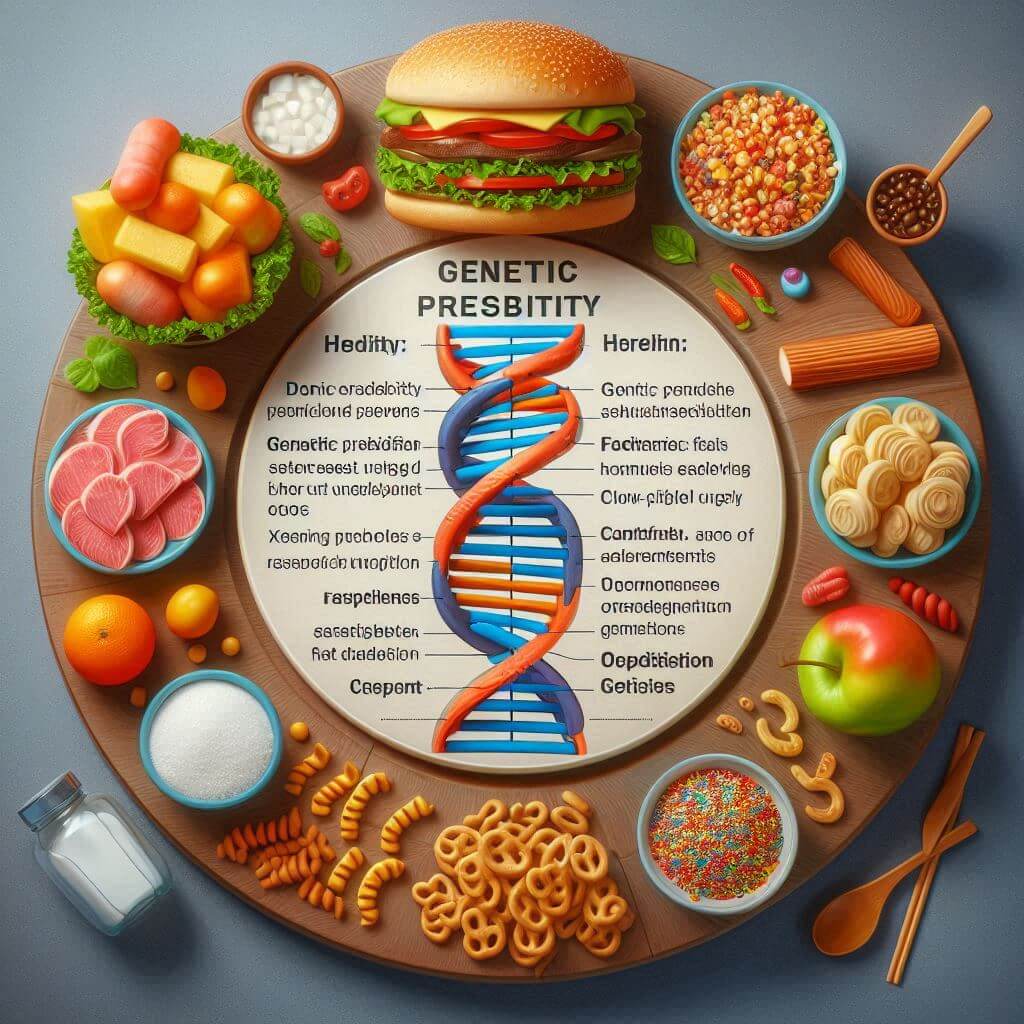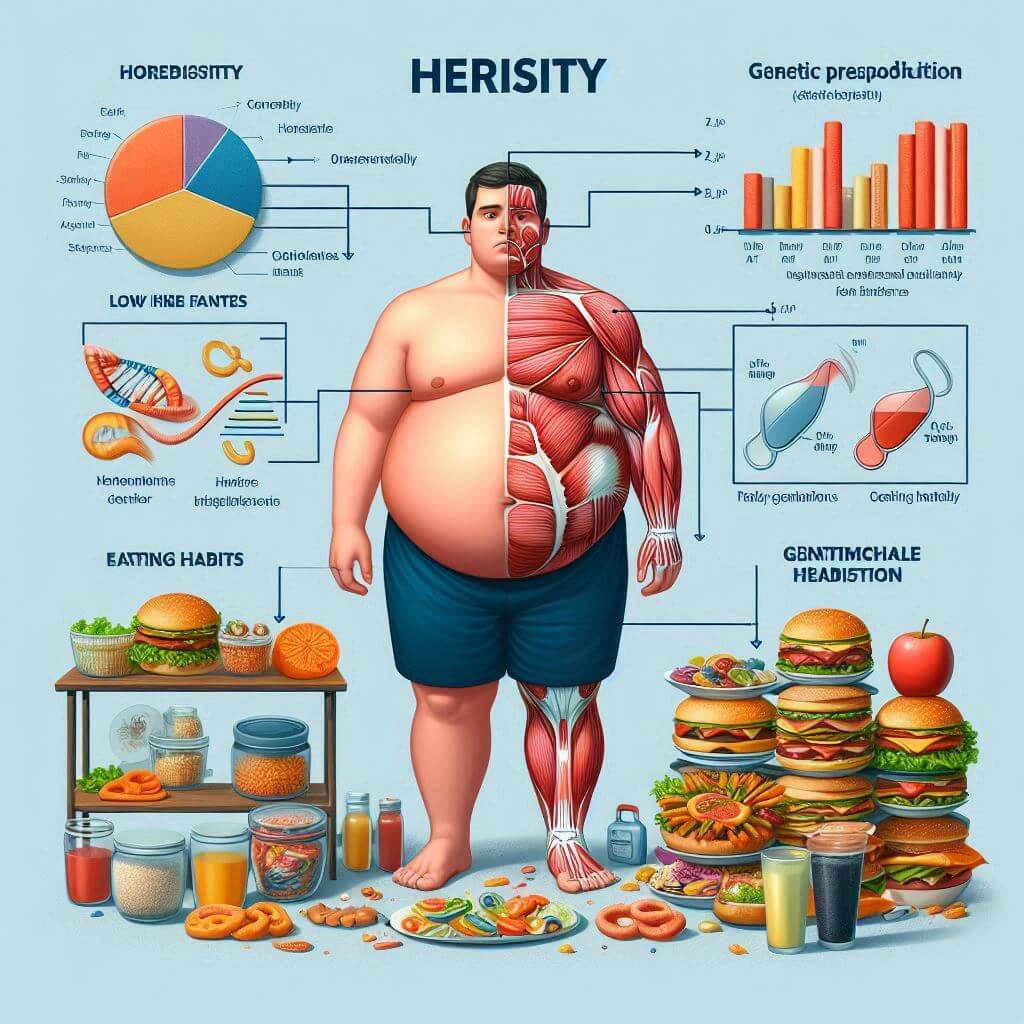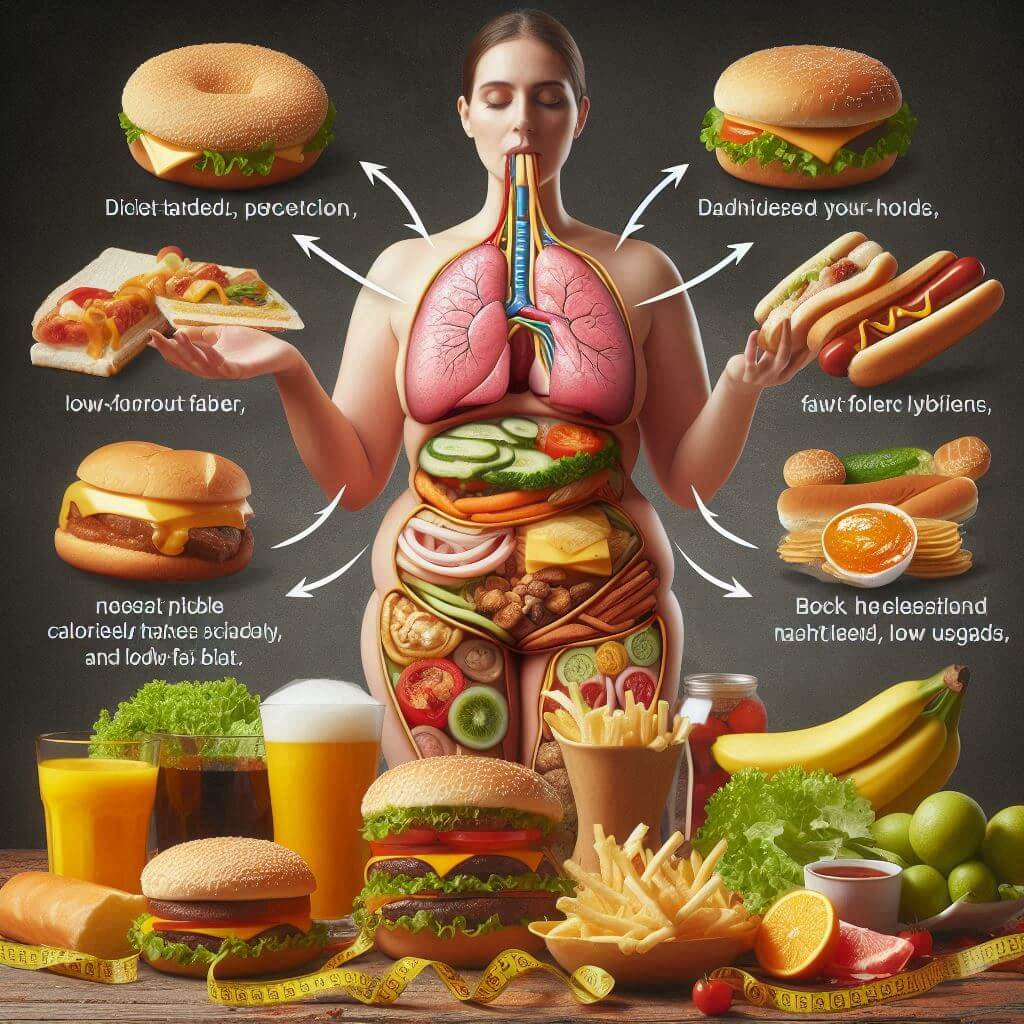Obesity, characterized by the excessive accumulation of body fat, transcends aesthetic limits and is a global public health problem, affecting millions of people and significantly increasing the risk of chronic diseases such as type 2 diabetes, heart disease, some types of cancer and strokes.
However, fighting overweight and achieving a healthier life is not an impossible mission. Through nutritional reeducation, a process of profound change in the individual's relationship with food, it is possible to achieve weight loss and maintain body weight in a sustainable way.
Unraveling the Roots of Obesity: A Multifaceted Web
The causes of obesity are not limited to excessive calorie intake. In fact, this complex condition is the result of the interaction of several factors, such as:
- Heredity: Genetic predisposition can influence how the body stores and uses energy, increasing the risk of obesity, especially when combined with other factors.
- Eating habits: A diet rich in processed, fatty, sugary foods and low in fiber significantly contributes to weight gain. This unbalanced intake provides the body with more calories than it can burn, leading to fat accumulation.
- Physical inactivity: The lack of physical exercises Regular exercise reduces calorie expenditure and creates an imbalance between energy intake and expenditure, favoring the accumulation of body fat. Regular physical activity, on the other hand, increases calorie expenditure, contributing to weight control and improving overall health.
- Psychological factors: Stress, anxiety, and depression can lead to binge eating and make it harder to control your weight. Intense emotions can lead you to seek comfort in food, even when you’re not hungry, which can sabotage your weight-loss efforts.
- Sleep: Getting too little sleep or poor quality sleep can harm the hormones that regulate appetite and metabolism, increasing the risk of obesity. Sleep deprivation increases the production of the hormone ghrelin, which stimulates appetite, and decreases the production of leptin, which promotes the feeling of satiety, leading to greater calorie consumption and making weight control difficult.
- Medicines: Taking certain medications, such as corticosteroids and antidepressants, can have weight gain as a side effect. It’s important to be aware of the possible side effects of the medications you’re taking and to talk to your doctor about how to manage your weight if you’re experiencing this problem.
- Obesogenic environment: Easy access to processed foods, lack of spaces for physical activity and intense advertising of unhealthy products contribute to the development of obesity. The environment in which we live can significantly influence our eating and physical activity habits, making it more difficult to maintain a healthy weight.

Challenges on the Path to Weight Loss: Obstacles to Overcome
Losing weight and maintaining it long-term can be a daunting challenge for many individuals with obesity. Major challenges include:
- Restrictive diets: Short-term diets that deprive the body of essential nutrients often result in temporary weight loss, but they are unsustainable and can lead to yo-yo dieting. Diets that are too restrictive can lead to malnutrition, fatigue, irritability, and even binge eating, making it difficult to maintain weight loss in the long term. Brazilian Nutrition Association (ABRAN):
- Changes in the lifestyle: Adopt a food healthy and practice exercises Regular physical exercise requires discipline and willpower, qualities that can be difficult to maintain in the long term, especially in an obesogenic environment. Sudden lifestyle changes can be discouraging and difficult to maintain, leading to abandonment and frustration.
- Psychological factors: Emotions such as stress, anxiety and frustration can lead to inappropriate eating behaviors, sabotaging weight loss efforts. Dealing with these emotions in a healthy way is crucial to the success of your eating reeducation.
Nutritional Reeducation as a Sustainable Solution: A New Path to Health
Dietary re-education presents itself as a more effective and lasting alternative to combat obesity, as
Nutritional Reeducation as a Sustainable Solution: A New Path to Health

Dietary re-education presents itself as a more effective and lasting alternative to combat obesity, as it focuses on changing eating and behavioral habits, rather than simply restricting calories.
Rather than depriving the body of essential nutrients, it promotes a healthy relationship with food, teaching the individual to make conscious and balanced choices.
Fundamental Principles of Nutritional Reeducation
- Food awareness: Understand the signs of hunger and satiety, avoiding eating out of emotion or habit.
- Nutritional balance: Prioritize natural and varied foods, such as fruits, vegetables, whole grains, proteins thin and healthy fats.
- Conscious moderation: Enjoy all foods without guilt, but be aware of quantities and frequencies.
- Self-knowledge: Identify emotional and behavioral triggers related to eating and develop strategies to deal with them.
- Flexibility: Allow for small indulgences without sabotaging the process, while maintaining a positive and realistic outlook.
Implementing Nutritional Reeducation: Practical Steps
- Seeking professional guidance: Consult a nutritionist to develop a personalized eating plan, considering individual needs and goals.
- Setting realistic goals: Set achievable, gradual goals to avoid frustration and discouragement.
- Meal planning: Plan meals and snacks in advance to avoid impulsive choices.
- Reading labels: Understand the nutritional composition of foods and make more informed choices.
- Regular practice of physical activity: Combine nutritional re-education with exercise to enhance results.
- Stress management: Find relaxation techniques to deal with emotions that may trigger binge eating.
- Social support: Seek support from family, friends or support groups to share experiences and motivation.
Overcoming Challenges and Celebrating Victories
Re-educating your eating habits is an individual journey, with ups and downs.
It is important to remember that relapses can occur, but they should not be seen as failures, but rather as learning opportunities.
Celebrating small achievements and recognizing progress is essential to maintaining motivation.
Obesity is a complex challenge, but nutritional re-education offers an effective and sustainable approach to achieving and maintaining a healthy weight.
By prioritizing balance, awareness, and enjoyment of food, you can transform your relationship with food and enjoy a healthier, happier life. Remember, change is a gradual process, and every little step counts.
Psychological Aspects of Obesity: Uncovering the Emotions Behind Weight

Obesity, in addition to being a complex medical condition, is also closely linked to mental health.
Psychological factors, such as stress, anxiety, depression, trauma and low self-esteem, can significantly influence the development and maintenance of obesity. Brazilian Society of Psychology (SBPR):
Understanding the Relationship Between Mind and Weight:
- Emotions as food triggers: Stress, for example, can lead to the search for foods rich in calories and sugars as a way of comfort and reward, even when there is no physical hunger.
- Low self-esteem and distorted body image: Individuals with low self-esteem may have a negative relationship with food, using it as a mechanism to deal with negative emotions or seeking fill an emotional void. Distorted body image, in turn, can lead to inappropriate eating behaviors and the belief that food is the only source of happiness or satisfaction.
- Eating disorders: Disorders such as binge eating, bulimia nervosa and anorexia nervosa have a strong psychological component and can have a significant impact on an individual's weight and overall health.
- Medication and side effects: Some medications used to treat psychological disorders can have increased appetite or weight gain as a side effect.
The Importance of Professional Monitoring:
Although dietary re-education is essential for the treatment of obesity, psychological counseling is crucial to address the underlying emotional aspects that may be contributing to the problem. A qualified psychologist can:
- Identify emotional and behavioral triggers related to food;
- Develop strategies to deal with difficult emotions in a healthy way;
- Promote self-esteem and positive body image;
- Treating eating disorders;
- Helping to change eating behaviors;
- Offer emotional support throughout the entire dietary reeducation process.
Benefits of Psychological Monitoring:
- Greater self-awareness and understanding the factors that influence eating behavior;
- Developing skills to deal with emotions in a constructive manner;
- Improved self-esteem and body image;
- Reduce stress and anxiety;
- Increased motivation to follow nutritional reeducation;
- Relapse prevention;
- Improved quality of life in general.
Seeking Expert Help:
- Psychologists: Professionals specialized in mental health, able to help you on your journey against obesity.
- Nutritionists: Expertise in nutrition and food, guiding you in an individualized and healthy eating plan.
- Support groups: Spaces to share experiences, exchange information and receive mutual support.
Remember: You are not alone on this journey. With the right professional support and your determination, it is possible to overcome the challenges of obesity and achieve a healthier, happier life.
Don't hesitate to seek professional help if you need it.

For further possible questions.
| Question | Response |
|---|---|
| What is obesity? | Obesity is characterized by the excessive accumulation of body fat and is a global public health problem that increases the risk of chronic diseases such as type 2 diabetes, heart disease and cancer. |
| What are the main causes of obesity? | Heredity, poor eating habits, physical inactivity, psychological factors, insufficient sleep, use of certain medications and an obesogenic environment. |
| How does heredity influence obesity? | Genetic predisposition can affect how the body stores and uses energy, increasing the risk of obesity, especially when combined with other environmental and behavioral factors. |
| How do eating habits contribute to obesity? | Diets rich in processed, fatty and sugary foods, with low fiber content, provide more calories than the body can burn, leading to fat accumulation. |
| What is the role of physical activity in preventing obesity? | Regular exercise increases calorie expenditure, helping with weight control and improving overall health. Physical inactivity, on the other hand, encourages the accumulation of body fat. |
| How do psychological factors affect weight? | Stress, anxiety, and depression can lead to binge eating and make it harder to control your weight. Emotional eating can sabotage your weight loss efforts. |
| How does sleep impact obesity? | Sleeping too few hours or having poor quality sleep alters the hormones that regulate appetite and metabolism, increasing the feeling of hunger and making it difficult to control weight. |
| How do medications affect weight? | Some medications, such as corticosteroids and antidepressants, can increase appetite or promote weight gain as a side effect. |
| What is nutritional reeducation? | It is a process of changing eating and behavioral habits, promoting a healthy relationship with food and conscious choices, instead of just restricting calories. |
| What are the fundamental principles of nutritional reeducation? | Food awareness, nutritional balance, conscious moderation, self-knowledge, and flexibility. |
| How to implement nutritional reeducation in practice? | Consult a nutritionist, set realistic goals, plan meals, read labels, exercise, manage stress, and seek social support. |
| How important is psychological support for obesity? | Psychological support helps identify emotional triggers, promote self-esteem, treat eating disorders, and provide emotional support during dietary reeducation. |
| Where can I seek professional help to combat obesity? | Psychologists, nutritionists and support groups are important resources to provide guidance, support and motivation on the journey against obesity. |
| What to do in case of relapses during the weight loss process? | See setbacks as learning opportunities, celebrate small achievements, and stay motivated with a positive and realistic outlook. |









